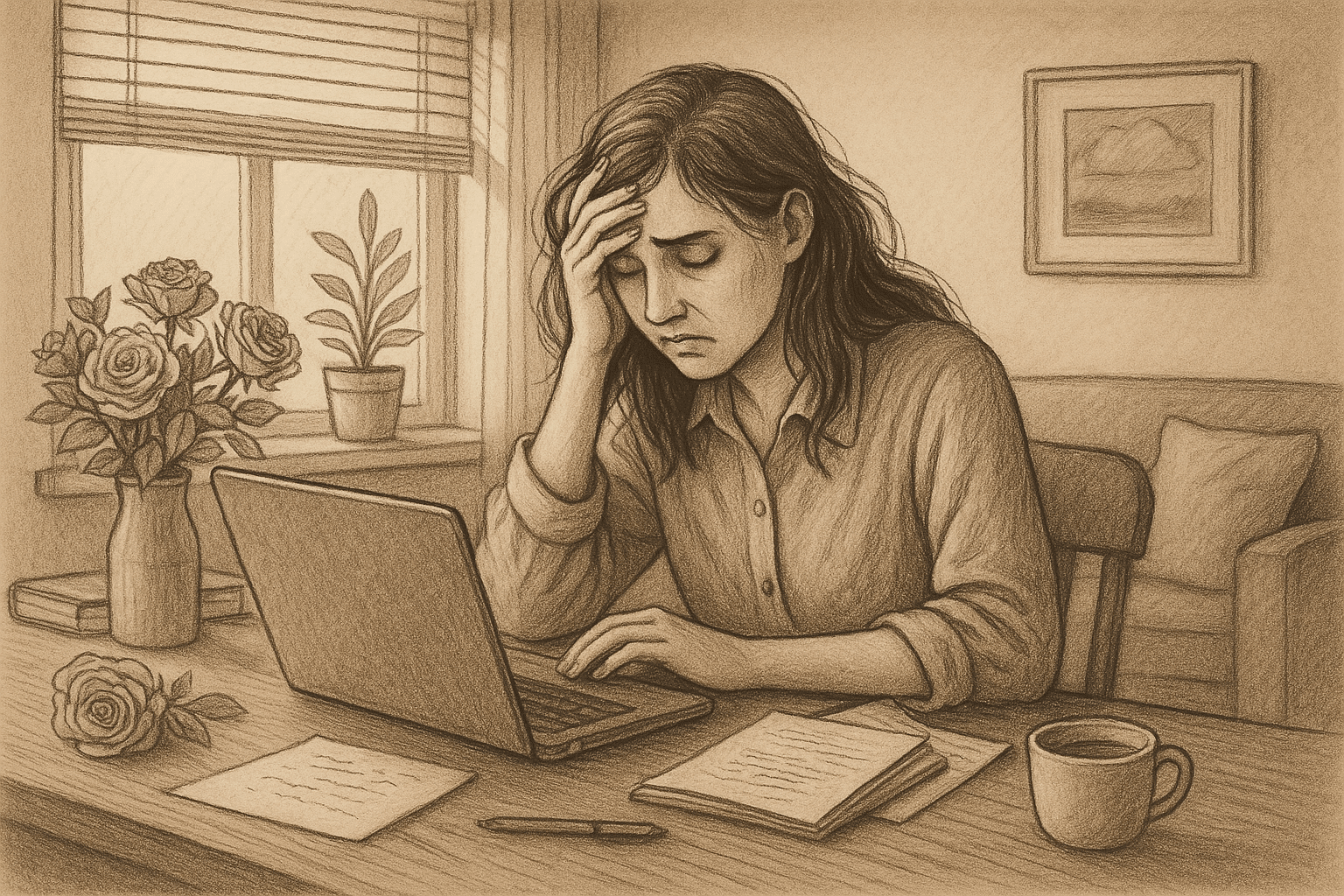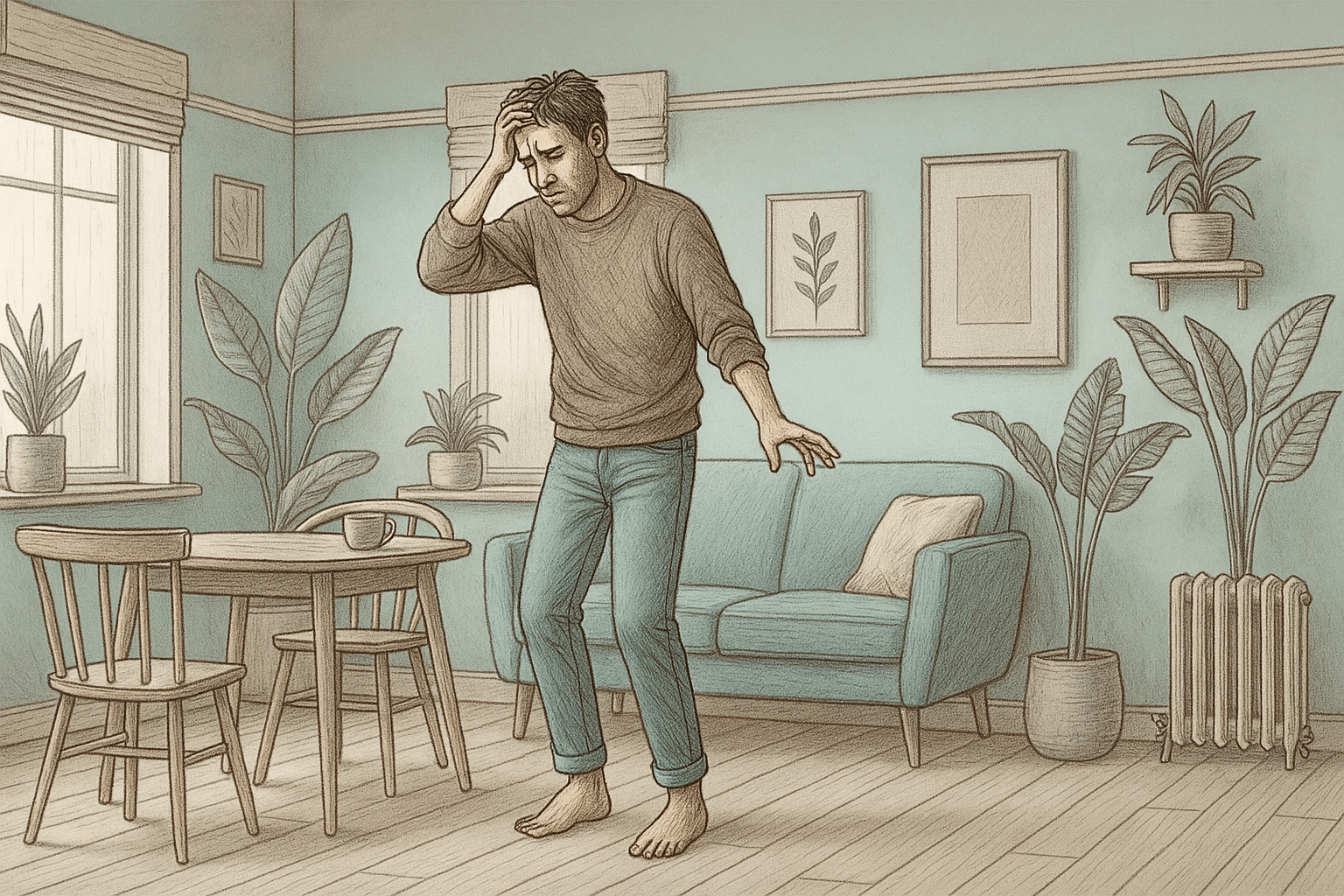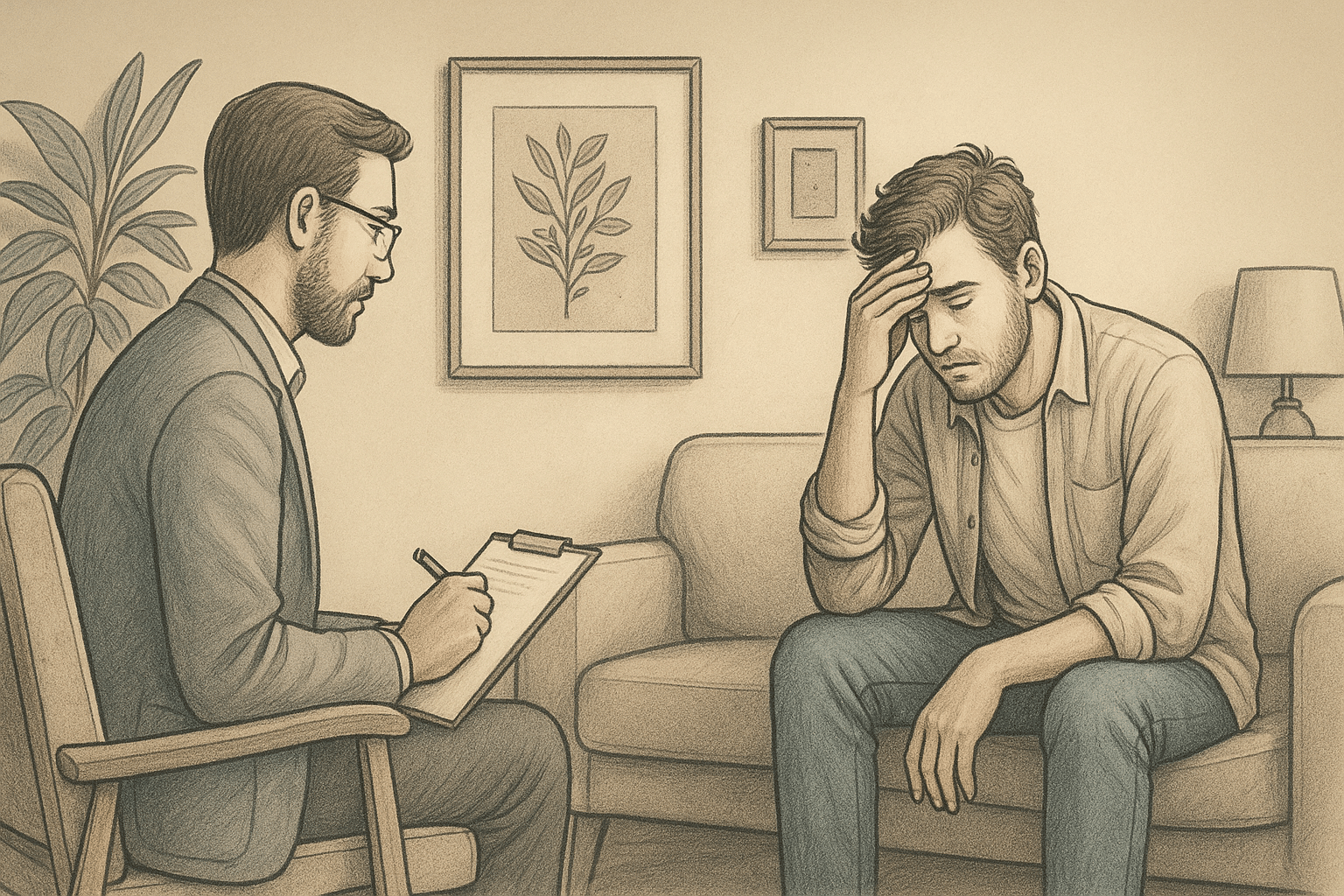Key Takeaways
- Grief is a natural response to loss with symptoms that gradually improve over time, whereas depression is a clinical condition that often requires professional intervention and may worsen without treatment.
- While grief and depression share symptoms like sadness and sleep disturbances, grief typically comes in waves tied to thoughts of loss. Meanwhile, depression involves persistent feelings of emptiness and hopelessness unrelated to specific triggers.
- Individuals with grief or depression can benefit from professional support, especially when grief becomes complicated or when depression symptoms persist beyond two weeks and interfere with daily functioning.
- A Mission For Michael (AMFM) offers comprehensive mental health treatment for depression, with personalized care plans that include evidence-based therapies like CBT and DBT, in addition to medication when necessary
Grief and Depression: Core Differences
At the heart of understanding grief and depression is recognizing their core differences. Grief is a natural response to a significant loss, such as the death of a loved one, and is often characterized by waves of sadness, anger, and yearning. On the other hand, depression is a mental health disorder that can arise without a specific trigger and involves a persistent feeling of sadness or loss of interest in activities once enjoyed.
Duration of Symptoms
Grief tends to be episodic, with feelings that come in waves. Over time, these waves typically become less intense and less frequent as you process the loss.

Most people find that they can eventually resume their normal lives, even if the loss still affects them.
Depression, on the other hand, is more persistent. Symptoms can last for weeks, months, or even years without significant improvement. This chronic nature of depression often requires intervention through therapy or medication to manage effectively.
Founded in 2010, A Mission For Michael (AMFM) offers specialized mental health care across California, Minnesota, and Virginia. Our accredited facilities provide residential and outpatient programs, utilizing evidence-based therapies such as CBT, DBT, and EMDR.
Our dedicated team of licensed professionals ensures every client receives the best care possible, supported by accreditation from The Joint Commission. We are committed to safety and personalized treatment plans.
Symptoms of Grief
Common Reactions
When dealing with grief, you might find yourself feeling a wide range of emotions. Sadness and longing are perhaps the most common, as you yearn for the person or situation that has been lost. Anger is also a typical reaction, especially if the loss feels unfair or unexpected. Additionally, you might experience disbelief or numbness, struggling to accept the reality of the situation.
Coping Mechanisms
Coping with grief involves finding ways to process these emotions healthily. Talking to friends and family, engaging in rituals like funerals or memorials, and allowing yourself to cry are all effective strategies. It’s also important to take care of your physical health by eating well, getting enough sleep, and exercising.
Some people find comfort in creative outlets, such as writing, painting, or music, as a way to express their feelings. Others might seek support from grief counseling or support groups, where they can share their experiences with others who understand what they’re going through.
Symptoms of Depression
Emotional and Physical Symptoms
Depression affects both emotional and physical well-being. Emotionally, you might experience feelings of hopelessness, worthlessness, or persistent sadness. Physically, symptoms include fatigue, changes in appetite, and sleep disturbances. These symptoms can be debilitating and interfere with daily functioning, making it crucial to seek help when they arise.
Impact on Daily Life

Depression can lead to a persistent feeling of sadness that affects every aspect of your routine.
You might struggle with getting out of bed, completing work tasks, or even maintaining personal hygiene. This may not necessarily be tied to specific events and requires active intervention to manage effectively.
Understanding how grief and depression affect your daily life can help you identify the right strategies to cope and seek support.
Overlapping Features
Shared Emotional Responses
Emotional responses such as sadness, anger, and guilt are common in both grief and depression. When grieving, these emotions are often directly related to the loss and can fluctuate in intensity. In depression, these feelings might not be tied to a specific event and can feel overwhelming and persistent.
Behavioral Similarities
Withdrawal from social activities, lack of motivation, difficulty concentrating, and changes in eating habits are behavioral similarities that can make it challenging to distinguish between grief and depression, but recognizing the context and duration of these behaviors can help.
For instance, social withdrawal might be more temporary in grief, whereas in depression, it could become a more permanent state.
Pay attention to how these behaviors evolve over time and whether they improve or worsen, as this can provide valuable insight into dealing with grief, depression, or a combination of both.
When Grief Leads to Depression
Signs of Transition
Key indicators include a persistent feeling of hopelessness, a lack of interest in life, and an inability to find joy in activities that once brought pleasure. Additionally, if feelings of guilt and worthlessness become overwhelming, it may indicate that grief has evolved into depression.
Another sign is when the physical symptoms of grief, such as fatigue and changes in appetite, become more pronounced and chronic. If these symptoms persist for more than a few months without any signs of improvement, it might be time to consider the possibility of depression.
When to Seek Help
If you suspect that your grief has transitioned into depression, seek professional help. A mental health professional can provide a proper diagnosis and recommend appropriate treatment options. Early intervention can prevent symptoms from worsening and help you regain control of your life.
Treatment Options
Therapy Approaches

Therapy can provide a safe space to explore your feelings and work through the challenges of grief and depression.
Therapy options like Cognitive Behavioral Therapy (CBT) focuses on changing negative thought patterns and behaviors, while interpersonal therapy (IPT) addresses relationship issues and social support.
In some cases, grief counseling can be beneficial, especially if the grief is complicated or prolonged. This type of therapy helps you understand and process your grief in a healthy way, allowing them to move forward with their lives.
Medication
Medication can be a helpful component of treatment for depression, especially if symptoms are severe. Antidepressants can help balance the chemicals in your brain, improving mood and energy levels. However, medication is typically most effective when combined with therapy and lifestyle changes.
Consult with a healthcare provider to determine if medication is appropriate for you and to discuss any potential side effects or interactions with other medications you may be taking.
Support Network Importance
Friends, family, and support groups can provide emotional comfort, understanding, and encouragement during difficult times. They offer a sense of connection and can help remind you that you’re not alone in your struggles.
Besides emotional support, these networks can also provide practical help, such as assisting with daily tasks or offering a listening ear when you need to talk. Engaging with others who have experienced similar situations can be particularly great since they can share coping strategies and offer empathy from a place of understanding.
Finding Healing at AMFM: Managing Grief and Depression

Understanding the difference between grief and depression is crucial for proper treatment. At AMFM, we recognize that these experiences can overlap.
A Mission For Michael’s, comprehensive approach to depression treatment addresses both the emotional and physical symptoms through evidence-based therapies and personalized care plans.
With treatment centers in California, Virginia, and Washington, we offer both inpatient residential treatment with 24/7 support to flexible outpatient options. Our expert clinical team utilizes CBT, Dialectical Behavioral Therapy (DBT), Eye Movement Desensitization and Reprocessing (EMDR), and other proven therapies to help you develop effective coping strategies and regain your sense of wellbeing.
If you’re struggling to determine whether you’re experiencing grief or depression, or if your grief has evolved into something more concerning, contact AMFM today at 866-478-4383 for a confidential assessment.
Our compassionate admission counselors can help determine which treatment options best suit your needs and guide you toward healing and recovery.
Frequently Asked Questions (FAQs)
Can grief look like depression?
Yes, grief can sometimes look like depression because they share similar symptoms, such as deep sadness, fatigue, and changes in appetite. However, grief is typically related to a specific loss and tends to improve over time, whereas depression is more pervasive and persistent.
How long does grief last?
The duration of grief varies for each person and depends on factors such as the nature of the loss and individual coping mechanisms. While there’s no set timeline, grief often becomes less intense over time as individuals process their emotions and adjust to their new reality.
What are the signs of complicated grief?
Complicated grief occurs when the grieving process becomes prolonged and interferes with daily functioning. Signs include intense longing for the deceased, difficulty accepting the loss, and persistent feelings of emptiness or meaninglessness. If you suspect you might be experiencing complicated grief, seek professional help.
Are therapy and medication both necessary?
Whether therapy and medication are both necessary depends on the individual and the severity of their symptoms. Some people find relief through therapy alone, while others benefit from a combination of therapy and medication. Work with a mental health professional to determine the best treatment plan for your specific needs.
What treatment approaches does AMFM use for depression?
AMFM offers comprehensive treatment for depression using evidence-based approaches such as Cognitive Behavioral Therapy (CBT), Dialectical Behavior Therapy (DBT), Eye Movement Desensitization and Reprocessing (EMDR), and group therapy. Our treatment programs blend traditional and holistic methods to provide whole-person care.
We offer both inpatient residential treatment with 24/7 support and outpatient options with flexible scheduling. Each treatment plan is personalized based on a comprehensive assessment of your specific symptoms and needs.










